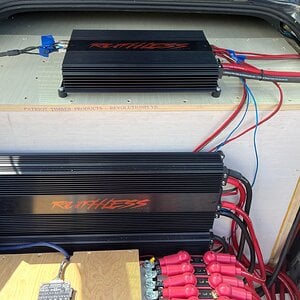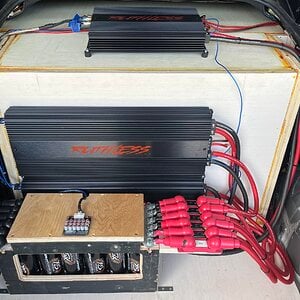keep_hope_alive Premium Member
Acoustics Engineer
DOH! yea, you got it. listing duration of the test to determine ratings for subs, speakers, and amplifiers is what our industry needs.I think you mean the other way around. Agreed, and I'll take that a step farther and say I'd really like to see SPEAKER manufacturers add some time numbers as well. In both cases I think most people who purchase based solely on whoever puts the biggest number on the box would be rather shocked.


